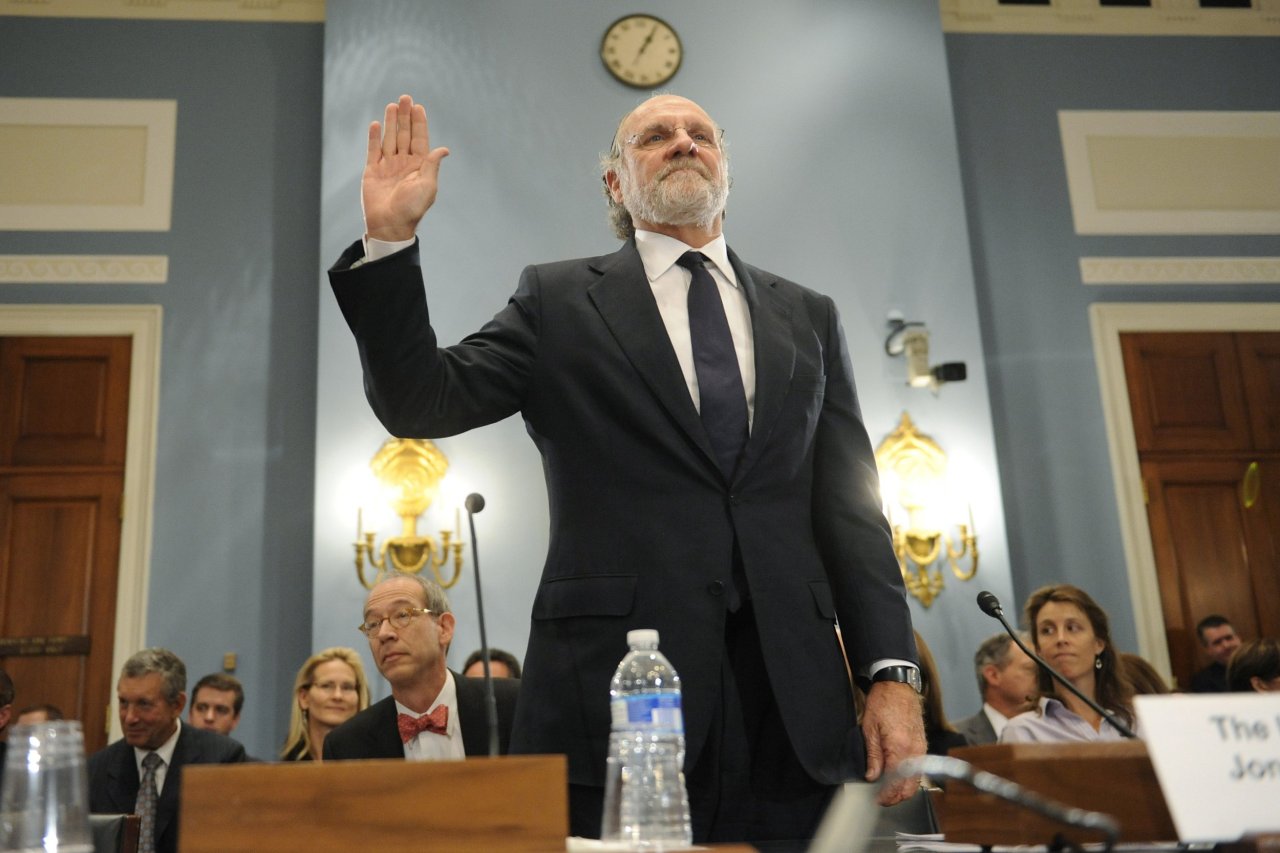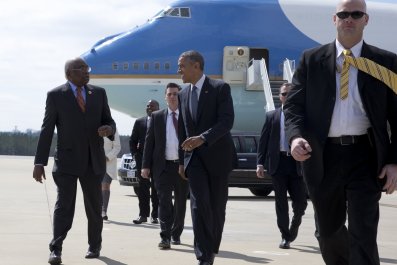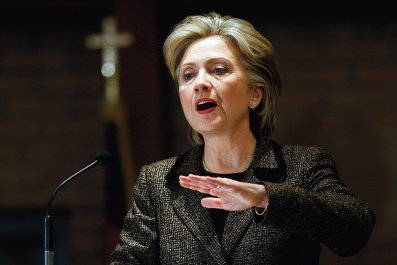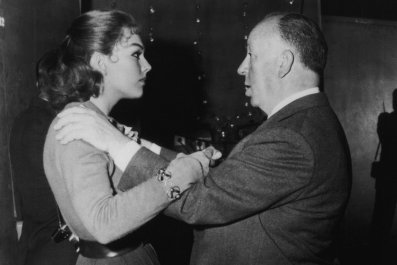Few of the financial titans who ran firms into the ground over the past decade are as deeply connected on Wall Street and in Washington, D.C., as Jon Corzine, onetime New Jersey governor and U.S. senator and the former CEO of both Goldman Sachs and the now-defunct brokerage house MF Global.
A testament to that may be how easily he bounced back from his grilling in Congress over the 2011 bankruptcy of MF Global—the eighth-largest bankruptcy in U.S. history—to be welcomed back into society circles. In August, Corzine hosted a "Ready for Hillary" party in the Hamptons with his new wife, psychotherapist Sharon Elghanayan, along with a group of well-heeled co-hosts that included actress Ashley Judd.
Yet James Koutoulas, CEO of $100 million Chicago hedge fund Typhon Capital Management, is determined to see Corzine get his comeuppance. "I am going to keep fighting until Corzine is in jail," he says. "The evidence we need to charge him is there. We need to make clear as a society that the next time a sociopath CEO says, 'Do I go out of business or do I cheat?' and chooses to cheat, he is going to be thinking about it in an orange jumpsuit in state prison."
Koutoulas, 34, faces formidable headwinds. Corzine, a former Democratic politician, has powerful friends, including President Barack Obama and Hillary Clinton, for whom he has raised hundreds of thousands of dollars in donations, including his own money.
And the former MF Global CEO has made it clear he is not about to give in. While many have forgotten about Corzine's legal travails, he is awaiting trial in U.S. District Court on civil charges brought by watchdog agency the Commodity Futures Trading Commission (CFTC), which accuses him of failing "repeatedly and unlawfully" to prevent more than $1 billion in customer funds from being misused as MF Global unraveled in the fall of 2011. With no trial date set, though, the civil suit could take years and will not result in jail time.
The Department of Justice (DOJ) and the FBI worked with the CFTC on the investigation but opted not to pursue criminal charges against Corzine for his actions as MF Global went bankrupt.
Criminal convictions are much harder to win than civil ones. "Criminal actions have a higher standard; you have to prove your case beyond a reasonable doubt," says Ron Filler, a New York Law School professor who specializes in derivatives, futures and options law. He adds that it looks as if the DOJ "did not think it had enough evidence to do that." Also, a high-level Washington lawyer, who agreed to speak to Newsweek on background, points out that Corzine hasn't agreed to settle with the CFTC, which could mean he thinks he has a strong defense. In 2014, he failed to win a dismissal of the case the CFTC had brought against him.
This much is established: Tens of thousands of ordinary Americans lost their money as MF Global fought insolvency—and the paper trail indicates the top brass who used customer money illegally were receiving instructions from Corzine.
Perhaps the most astounding fact of the MF Global case is that the wire transfers of customer money for improper reasons is not in question, nor is there any question which executives were calling the shots in the final days.
Corzine joined MF Global as CEO in the spring of 2010, after losing his bid for a second term as New Jersey governor in 2009 and being ousted from Goldman in a palace coup a decade earlier. The CFTC said he had "a plan to transform the firm from a futures broker into a major investment bank."
"Corzine's strategy called for making increasingly risky and larger investments of the firm's money," the CFTC said. Just over a year into his tenure, MF Global was already in trouble, as the multibillion-dollar bets he made on Spanish, Italian and other European bonds cratered during the eurozone crisis. Losses mounted and ate into MF Global's cash position. The company began dipping into customer funds to meet its day-to-day shortfalls, but by October 2011, even that couldn't keep it afloat.
Koutoulas, whose hedge fund, Typhon, was just three years old, found many of his customers caught up in MF Global's cash crunch because they used the firm's brokerage services—and MF Global was using their money. The day MF Global went bankrupt, October 31, 2011, one of his grain and livestock traders in Indianapolis was handling client orders when the screen went black. And $55 million of the firm's funds was instantly inaccessible—more than two-thirds of Typhon's total assets at the time.
Koutoulas, who trained as a lawyer before going into finance, quickly reached out to other investors in a similar position—everyone from small-time ranchers to hedge funds larger than his own. The result was a powerful grassroots group, the Commodity Customer Coalition, which he co-founded with close friend and fellow trader John Roe, son of Tennessee Republican congressman Dr. Phil Roe. Within months, the group had amassed nearly 10,000 members.
Koutoulas won the opening battle against Corzine: He led a fight in federal bankruptcy court to fully reimburse all 38,000 MF Global customers in 50 states and abroad who lost $1.6 billion of their investments and life savings—money that, according to reports from people close to MF Global, had "vaporized"—as the firm skidded into bankruptcy.
MF Global clients saw around $6.7 billion of their funds frozen in the bankruptcy proceedings, as a federal judge attempted to sort out who was owed what. "It was a disaster on a scale never seen in the history of the United States," says Koutoulas, who flew from Chicago to New York to represent MF Global customers pro bono.
When Koutoulas walked into New York bankruptcy court in November 2011 ("a rich man's club where everyone is old" is how he described it to me), the judge looked surprised by his appearance. Koutoulas was only 30. "I graduated from Northwestern Law, but I had zero courtroom experience," he says.
"As of last April, we finally recovered every last penny for the farmers, ranchers, commercial hedgers, retirees, even single mothers who had their investments and life savings raided," Koutoulas says. "Now it's time to finish the job."
As it turns out, the money did not vaporize. Customer funds were used to prop up the firm as it experienced a run on the bank. According to the CFTC, "Corzine was warned about the firm's liquidity stresses and he knew that the firm violated its own policy designed to protect customer funds." Even so, MF Global held on to losing trades authorized by Corzine.
Koutoulas says MF Global was routinely using customer funds to cover losses on trades it made on its own account. "That's a clear violation of the Commodity Exchange Act. It's a felony, and it's punishable with up to 10 years in prison. We should be enforcing this law, or it undermines our entire financial system."
Under Title 7 of the U.S. Code, the law states that the misuse of customer funds "with criminal intent" or the misrepresentation of material facts—which the CFTC alleges took place in the MF Global scandal—is a "felony punishable by a fine of not more than $1 million or imprisonment for not more than 10 years, or both, together with the costs of prosecution."
While Corzine has denied any wrongdoing—and told the House Agriculture Committee days after the bankruptcy filing, "I simply do not know where the money is"—the CFTC contests that. In one of many recorded phone calls obtained by the agency detailing MF Global's panic in the final days, the treasurer of MF Global told its chief financial officer, "We have to tell Jon that enough is enough. We need to take the keys away from him."
However, when Mike Johanns, a former Republican senator from Nebraska, asked MF Global CFO Henri Steenkamp about who made the decision to misuse customer funds, demanding, "I want names—who would authorize and who would have that oversight?," Steenkamp said, "I am not 100 percent sure who the exact person is."
Despite the concerns that were raised, MF Global Assistant Treasurer Edith O'Brien continued to transfer hundreds of millions of dollars of customer money to cover company shortfalls in a major violation of market rules, according to the CFTC, telling a fellow staffer it was "per JC's direct instructions," meaning Jon Corzine. O'Brien is also facing civil charges from the CFTC that she aided and abetted the misuse of customer funds.
In one of dozens of exchanges cited by the CFTC in its complaint, Corzine told an employee MF Global would do whatever was necessary to not move cash out of a crucial revolving credit facility, even if that meant "going negative" by taking funds from customer accounts. Lawyers for both Corzine and O'Brien declined to comment to Newsweek, as litigation is ongoing.
Now that customers have their money back and MF Global has settled all charges against it, Koutoulas says his next goal is to nail Corzine. "I work 80-hour weeks with heavy travel, but I spend every spare moment I can find working on a simple goal: to put Corzine's ass in prison." Koutoulas is speaking with state attorneys general to convince them to bring a criminal case. "We've got 50 states in this country, and customers were robbed from every single one of them. Any one of these AGs can bring a case. And we will win and we will get a conviction."
Among the AGs he has contacted are New York's Eric Schneiderman, a Democrat, who has burnished his credentials sticking up for the little guy and cracking down on Wall Street. But he didn't bite. The lawyers who spoke with Newsweek said it isn't surprising that state AGs won't pursue a case the DOJ has discarded. "It is entirely possible the DOJ couldn't prove Corzine intentionally gave instructions that resulted in a fraud," Filler says. Schneiderman's office did not return calls from Newsweek for comment.
While Corzine isn't the only financial executive to avoid criminal prosecution in the wake of the financial crisis, critics—many, but not all, of them Republican—have linked his ties to the Democratic Party to the DOJ's failure to prosecute. In May 2012, former U.S. representative Michael Grimm (a Republican from New York who stepped down in January after pleading guilty to a single felony charge of federal tax fraud) wrote a letter to Attorney General Eric Holder signed by 64 other House colleagues requesting the appointment of a special counsel to take over the DOJ's investigation.
"Clearly, it would not strain the credulity for the American people to perceive a conflict of interest when an individual raises such large sums of money for the president's re-election campaign and who is at the same time possibly under investigation by an agency or agencies controlled by the administration for possible criminal wrongdoing," the letter said.
The DOJ did not appoint a special counsel, says Koutoulas, who adds that the DOJ interrogations of MF Global executives, including Corzine, remain sealed. Both the DOJ and the White House declined to comment on the investigation to Newsweek.
Even if Koutoulas fails to convince any state AGs to take the case, the civil complaint could lead to further actions, says New York Law School's Filler. "If [Corzine] fights this civil case and loses, it could lead to potential criminal prosecution."




























